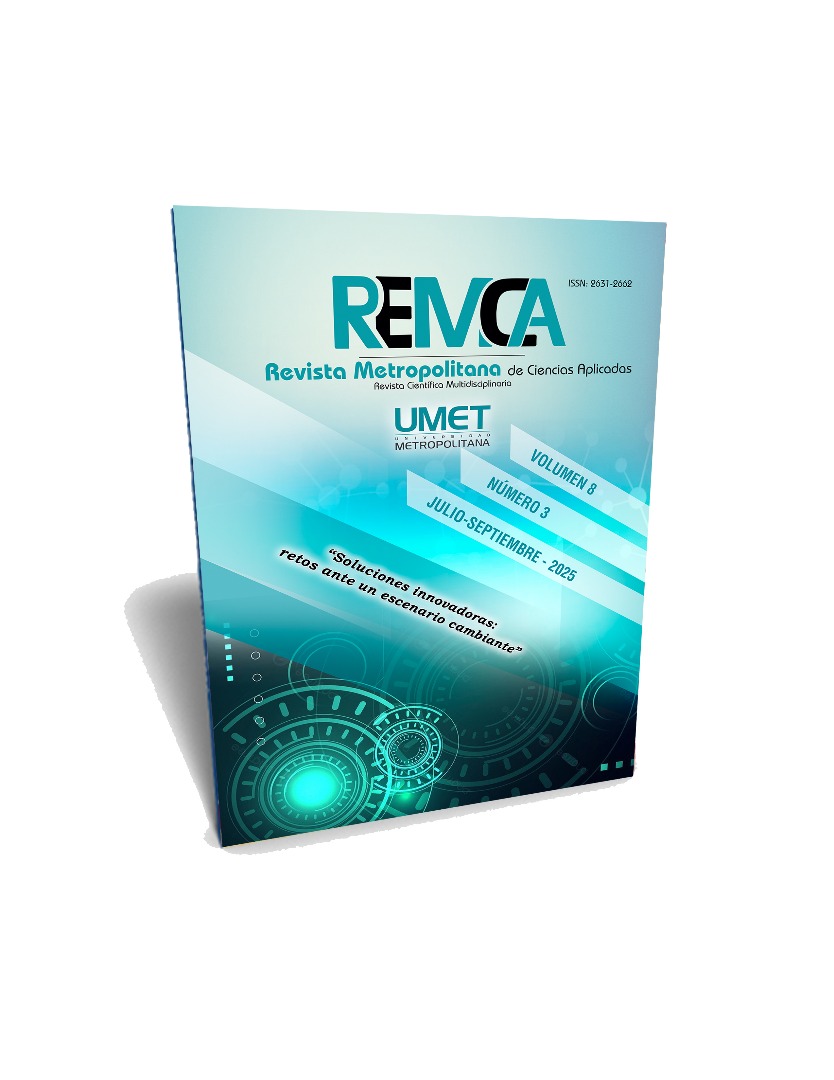Comparative analysis of Ecuadorian civil procedural law versus Latin American legal systems
DOI:
https://doi.org/10.62452/2ggx7g21Keywords:
Judicial efficiency, AHP Method, Legal systems, Latin AmericaAbstract
This paper compares the efficiency and rights protection of Ecuador’s civil procedural system with other Latin American countries, using the Analytic Hierarchy Process (AHP) method. Results show that Ecuador has improved judicial efficiency through alternative dispute resolution mechanisms, but still faces challenges such as lengthy proceedings and case overload. Regulatory gaps and the need to enhance digitalization and transparency are identified. The study concludes that, while Ecuador has made progress in rights protection and efficiency, further improvements are needed to ensure accessible and timely justice.
Downloads
References
Acosta de los Santos, H. (2025). La duración de los procesos civiles. https://do.vlex.com/vid/procesos-civiles-360765354
Carnelutti, F. (1944). Sistema de Derecho procesal Civil. UTEHA.
Devis-Echandía, H (1985). Teoría general del proceso. Editorial Universidad.
Echeverría Mora, F. J., Romero Rodríguez, J. O., & Freire Gaibor, E. F (2024). La transformación digital en el proceso judicial ecuatoriano, audiencias telemáticas y tecnología aplicada. Revista Científica de Educación Superior y Gobernanza Interuniversitaria Aula 24, 6(9). https://publicacionescd.uleam.edu.ec/index.php/aula-24/article/download/1032/1517/4554
Ecuador. Consejo de Participación Ciudadana y Control Social (2012). La reforma a la justicia, deber ineludible del estado. Coordinación de Comunicación CPCCS. https://www.cpccs.gob.ec/wp-content/uploads/2017/02/VEDURIA-INTERNACIONAL1.pdf
Fuentes, J. A (2021). The Basic Structure of the Ecuadorian Legal System and Legal Research. https://www.nyulawglobal.org/globalex/ecuador1.html
León-Trujillo, E. S., Saca-Balladares, M. F., & Paredes-Chiluisa, T. G (2024). Debido proceso, análisis comparativo entre el Código de Procedimiento Civil y el Código Orgánico General de Procesos. Revista Científica y Arbitrada de Ciencias Sociales y Trabajo Social: Tejedora, 7(13), 105-125. https://doi.org/10.56124/tj.v7i13.008
Organización de los Estados Americanos. (2024). Fortalecimiento de las capacidades de los sistemas judicial y de investigación para combatir y reducir las amenazas a la seguridad pública en el Ecuador. https://www.oas.org/ext/es/seguridad/capacidades-judicial-investigacion-amenazas-seguridad-publica
Peñaranda Valbuena, H., Quintero de Peñaranda, O., Peñaranda Quintero, H., & Peñaranda, M. (2011). Sobre el derecho procesal en el siglo XXI. Nómadas. Critical Journal of Social and Juridical Sciences, 30(2). https://www.redalyc.org/pdf/181/18120143018.pdf
Samaniego-Quiguiri, D. P (2023). Acceso a la Justicia y Equidad en el Sistema Legal Ecuatoriano. Revista Científica Zambos, 2(2), 50-62. https://revistaczambos.utelvtsd.edu.ec/index.php/home/article/download/45/91/168
Smulovitz, C., & Urribarri, D (2008). Poderes judiciales en América Latina: entre la administración de aspiraciones y la administración del derecho. iFHC/CIEPLAN. https://fundacaofhc.org.br/files/papers/447.pdf
Universidad a Distancia de Madrid. (2022). Derecho procesal civil. https://www.udima.es/es/derecho-procesal-civil-120.html
Vázquez-Sotelo, J. L (2003). El proceso civil y su futuro. Derecho PUCP, 56, 175-219. https://heinonline.org/hol-cgi-bin/get_pdf.cgi?handle=hein.journals/derecho56§ion=8
Villadiego, C., & Hernández, C (2007). Estudio Comparativo Avance en América Latina y el Caribe de la Reforma a la Justicia Civil. CEJA. https://biblioteca.cejamericas.org/bitstream/handle/2015/1096/Estudiocomparativojusticiacivileditado.pdf?sequence=1&isAllowed=y
Zurita Acurio, C (2023). La justicia alternativa como mecanismo para disminuir la carga procesal en el sistema judicial ecuatoriano. Pro Sciences: Revista de Producción, Ciencias e Investigación, 7(47). https://journalprosciences.com/index.php/ps/article/download/653/690/1723
Downloads
Published
Issue
Section
License
Copyright (c) 2025 Ingrid Joselyne Díaz-Basurto, Cinthia Mariela Cajas-Parraga, Cesar Elías Paucar-Paucar (Autor/a)

This work is licensed under a Creative Commons Attribution-NonCommercial-ShareAlike 4.0 International License.
Authors who publish in Revista Metropolitana de Ciencias Aplicadas (REMCA), agree to the following terms:
1. Copyright
Authors retain unrestricted copyright to their work. Authors grant the journal the right of first publication. To this end, they assign the journal non-exclusive exploitation rights (reproduction, distribution, public communication, and transformation). Authors may enter into additional agreements for the non-exclusive distribution of the version of the work published in the journal, provided that acknowledgment of its initial publication in this journal is given.
© The authors.
2. License
The articles are published in the journal under the Creative Commons Attribution-NonCommercial-ShareAlike 4.0 International License (CC BY-NC-SA 4.0). The terms can be found at: https://creativecommons.org/licenses/by-nc-sa/4.0/deed.en
This license allows:
- Sharing: Copying and redistributing the material in any medium or format.
- Adapting: Remixing, transforming, and building upon the material.
Under the following terms:
- Attribution: You must give appropriate credit, provide a link to the license, and indicate if any changes were made. You may do this in any reasonable manner, but not in any way that suggests the licensor endorses or sponsors your use.
- NonCommercial: You may not use the material for commercial purposes.
- ShareAlike: If you remix, transform, or build upon the material, you must distribute your creation under the same license as the original work.
There are no additional restrictions. You may not apply legal terms or technological measures that legally restrict others from doing anything the license permits.




